‘Hope is a thing with feathers.’
‘How diminished our world would be without birds,
those dinosaurs with feathers and songsmiths with wings.’
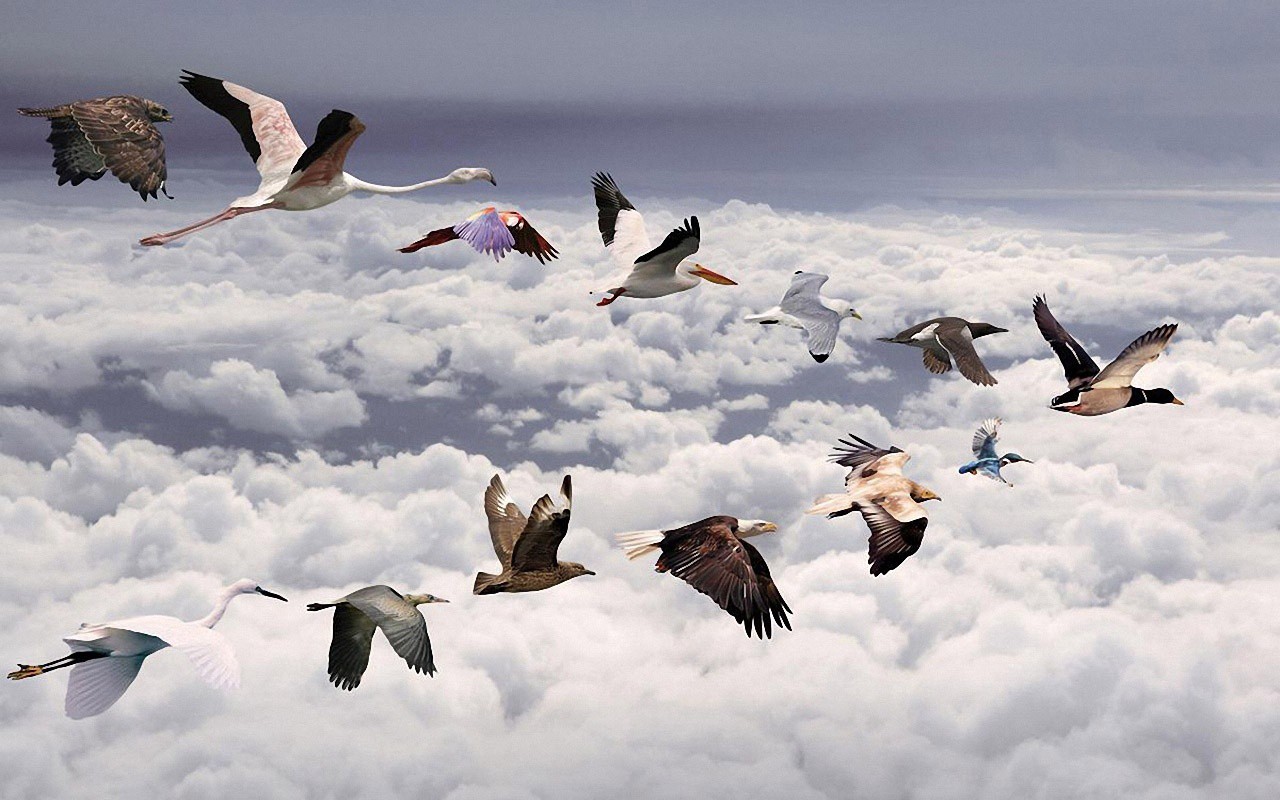
Photo:Pinterest
Hope is the thing with feathers
'Hope is the thing with feathers
That perches in the soul,
And sings the tune without the words,
And never stops at all,
And sweetest in the gale is heard;
And sore must be the storm
That could abash the little bird
That kept so many warm.
I've heard it in the chillest land,
And on the strangest sea;
Yet, never, in extremity,
It asked a crumb of me.'- Emily Dickinson
‘We read so much into birds. The canary down the mine whose death warns miners of gas and the dove with a green twig that tells Noah the flood is receding feed into a feeling that birds are sign-bearers, omens, the gods’ messengers. Across history, across cultures, birds are also an image of escape. “Oh, for the wings of a dove,” says King David, so he could fly to the wilderness and be at rest.
‘Birds spell renewal. Children in ancient Greece welcomed the swallow as a messenger of spring. “Hope,” Emily Dickinson writes, “is the thing with feathers/That perches in the soul” – and when I hear a wren singing in the freezing cold of the early morning (how can something so small fill the backstreets of Kentish Town?), my heart does something that approximates to lifting.
‘But all this is just our imagination, as we plunder nature for symbols. In biological reality, birds are even more extraordinary. They are evolved creatures, programmed by their DNA, adapted to a particular place or trajectory, which fulfil the destiny written in their genes through behaviour that bewitches poets and scientists alike…’- Ruth Padel
‘BIRDS. Over 9,000 species, the most widespread of all animals: on icebergs, in the Sahara or under the sea, at home in our gardens or flying for over a year at a time. Earthbound, we can only look and listen, enjoying their lightness, freedom and richness of plumage and song.’- Sir David Attenborough
‘To be alone in the dawn chorus reminds us how precious life is.’- Henry Porter
Beautiful singing birds: how the dawn chorus, the rising sun reconnects me to life, and hope
Life, endangered mother nature and the cult of busyness
‘How diminished our world would be without birds, those dinosaurs with feathers and songsmiths with wings.’
Many of the birds that enchant us and beautify our lives, giving us hope are under threat. We must cherish them. We must hear them.
Let us be warned, if we continue to endanger, plunder and destroy mother nature, then, for sure, her fate becomes ours, lest we forget.
"We have to look at life with respect and wonder. We need an ethical system in which the natural world has value not just for human welfare but for and in itself. The universe is something internal as well as external."- Crispin Tickell
Some of the Endangered Birds Around the World
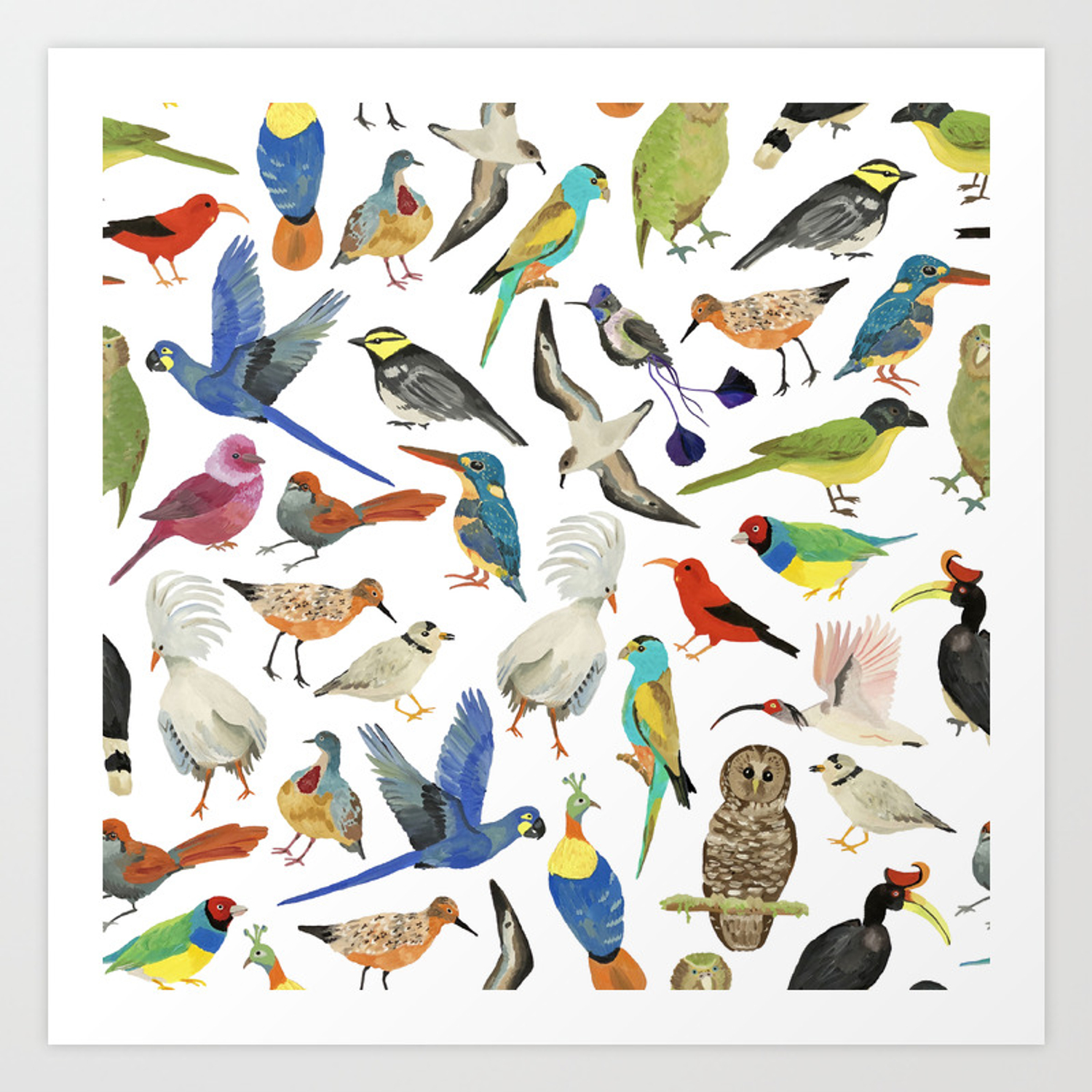
Illustration by dasBrooklyn
Not long ago, addressing the call of our endangered and disappearing world, I posted a Blog on the wisdom, beauty, and the lessons we can learn from our tiny, little friends, singing and dancing all day long.
Yes, it is true, ‘The greatest wisdom comes from the smallest creatures. There is so much we can learn from birds.’
‘PT Barnum was wrong. The circus is not the greatest show on Earth. Nature is.’
By listening to the sweet music of the woodland linnet or hearing how the throstle sings, we can let Nature be our Wisest Teacher.
Live Like a Bird: Philosophical and Wise
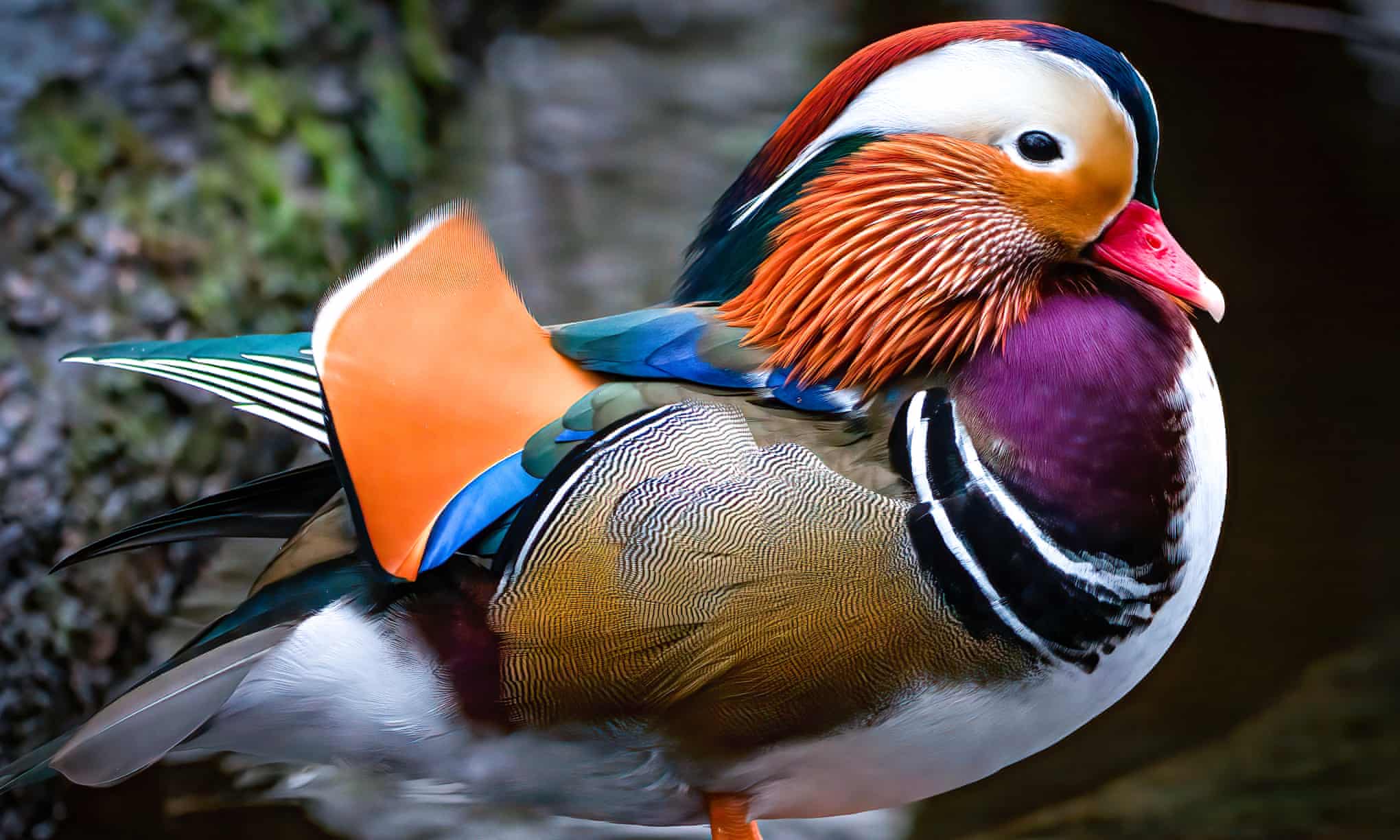
A male mandarin duck pictured in Balloch, Scotland in January 2021. Photo: Paul Fraser/ The Guardian
Now, I wish to follow that Blog, by sharing a timely article by Kim Heacox, an enviromental activist and a keen ornithologist. He lives in Alaska.
‘Birds are remarkable and beautiful animals – and they’re disappearing from our world.’
By Kim Heacox/ Via The Guardian
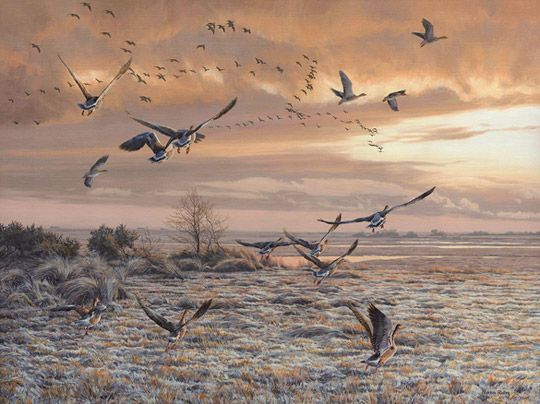
Wild Geese- A painting by Martin Ridley
Wild Geese
‘You do not have to be good.
You do not have to walk on your knees for a hundred miles through the desert, repenting.
You only have to let the soft animal of your body
love what it loves.
Tell me about despair, yours, and I will tell you mine.
Meanwhile the world goes on.
Meanwhile the sun and the clear pebbles of the rain
are moving across the landscapes
over the prairies and the deep trees
the mountains and the rivers.
Meanwhile the wild geese, high in the clean blue air
are heading home again.
Whoever you are, no matter how lonely,
the world offers itself to your imagination,
calls to you like the wild geese, harsh and exciting—
over and over announcing your place in the family of things.’- Mary Oliver, Wild Geese
‘How diminished our world would be without birds, those dinosaurs with feathers and songsmiths with wings.’
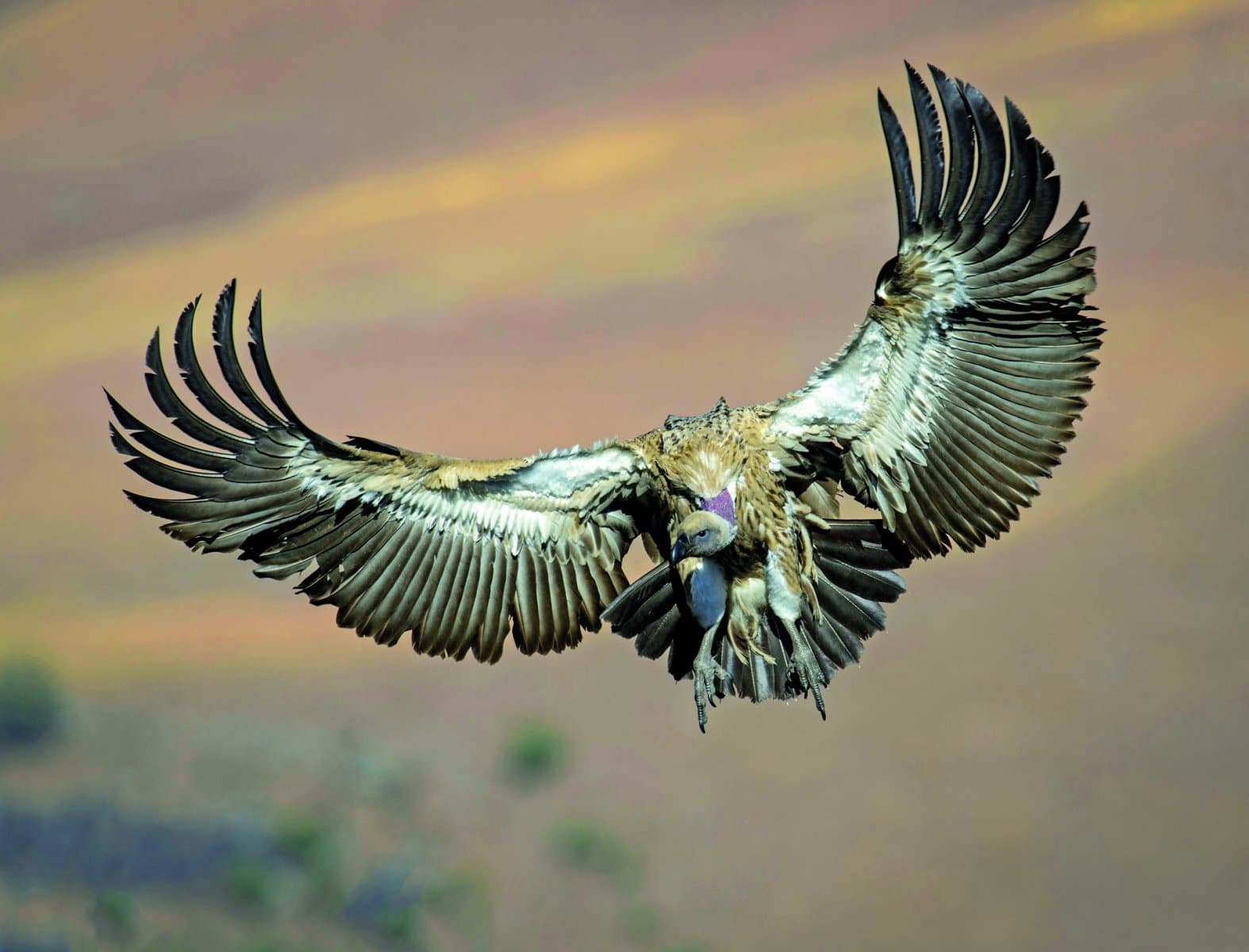
‘We think of vultures as the ultimate survivors. But even species like the Cape Vulture are in
danger of extinction’. For photo credit and more see HERE
‘When the poet Mary Oliver wrote “Instructions for living a life,” she reminded us: “Pay attention. Be astounded. Tell about it.”
This past autumn, wildlife officials announced that a bird, a male bar-tailed godwit, flew nonstop across the Pacific Ocean 8,100 miles from Alaska to Australia in just under 10 days. Fitted with a small solar-powered satellite tag, the godwit achieved “a land bird flight record”. But of course godwits have been doing this for centuries. Come next April-May, all things well, determined godwits will make the trip in reverse, bound for Alaska to nest and raise their young. They won’t be alone.
Northern wheatears, songbirds less than six inches long, will arrive in Alaska from sub-Saharan Africa. Arctic terns will return from Antarctica, with each bird flying the equivalent of three trips to the moon and back in a single lifetime. Bar-headed geese will fly over the Himalayas at altitudes exceeding 20,000 feet.
PT Barnum was wrong. The circus is not the greatest show on Earth. Nature is.
How diminished our world would be without birds, those dinosaurs with feathers and songsmiths with wings. Not that I was born John James Audubon. I used to ignore birds, and was poorer for it. Once, in my teens, while out with my .22 rifle, I spotted a red-tailed hawk riding a July thermal. I aimed and fired, and watched it drop from the sky. Stunned, I ran to it and found it thrashing in the dry summer grasses, dying. I walked away, fell to my knees, and threw up.
Now, decades later, I love birds – how they bring me joy and give me wings; how they enlarge my world, slow me down, make me listen. In every hawk I see a velociraptor. In every thrush I hear exquisite music. In every swallow I witness an aerial dance as they snap insects in midair. In every epic migration I find myself redefining what’s possible. And always the same question arises: can we, the human race, in all our commerce and carbon-burning, somehow save our winged cousins?
In the past half century, North America has lost more than one-fourth of its birds. Nearly everywhere, they are in decline. Massive die-offs of flycatchers, swallows, bluebirds, sparrows and warblers – described as thousands of birds “falling out of the sky” – have been recorded in recent years in New Mexico, Colorado, Texas, Arizona and Nebraska. Smoke from intense California fires forced tule geese to reroute their migration and take twice as long. Elsewhere, as birds lay their eggs earlier, due to a warming climate, more chicks die from sudden inclement weather events.
This is where we find ourselves, trapped in a diminished world of our own making. Today only 30% of all birds are wild; the other 70% are mostly poultry chickens. In essence, Earth is now a coalmine, and every wild bird is a canary – what ecologists call a “bio-indicator” – in that mine. Their fate is ours…’- Continue to read
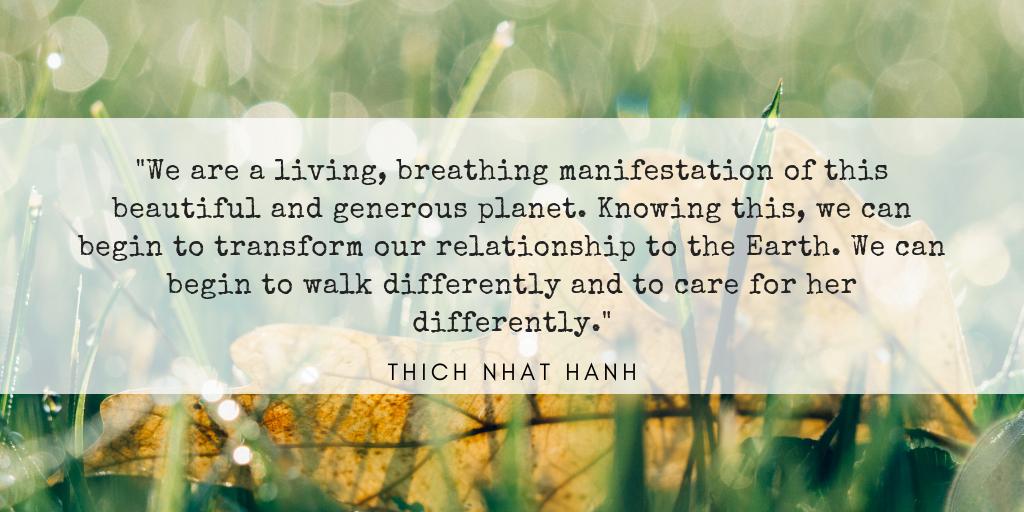
“Our own life has to be our message”- Thich Nhat Hanh
Life, endangered mother nature and the cult of busyness
GCGI is our journey of hope and the sweet fruit of a labour of love. It is free to access, and it is ad-free too. We spend hundreds of hours, volunteering our labour and time, spreading the word about what is good and what matters most. If you think that's a worthy mission, as we do—one with powerful leverage to make the world a better place—then, please consider offering your moral and spiritual support by joining our circle of friends, spreading the word about the GCGI and forwarding the website to all those who may be interested.
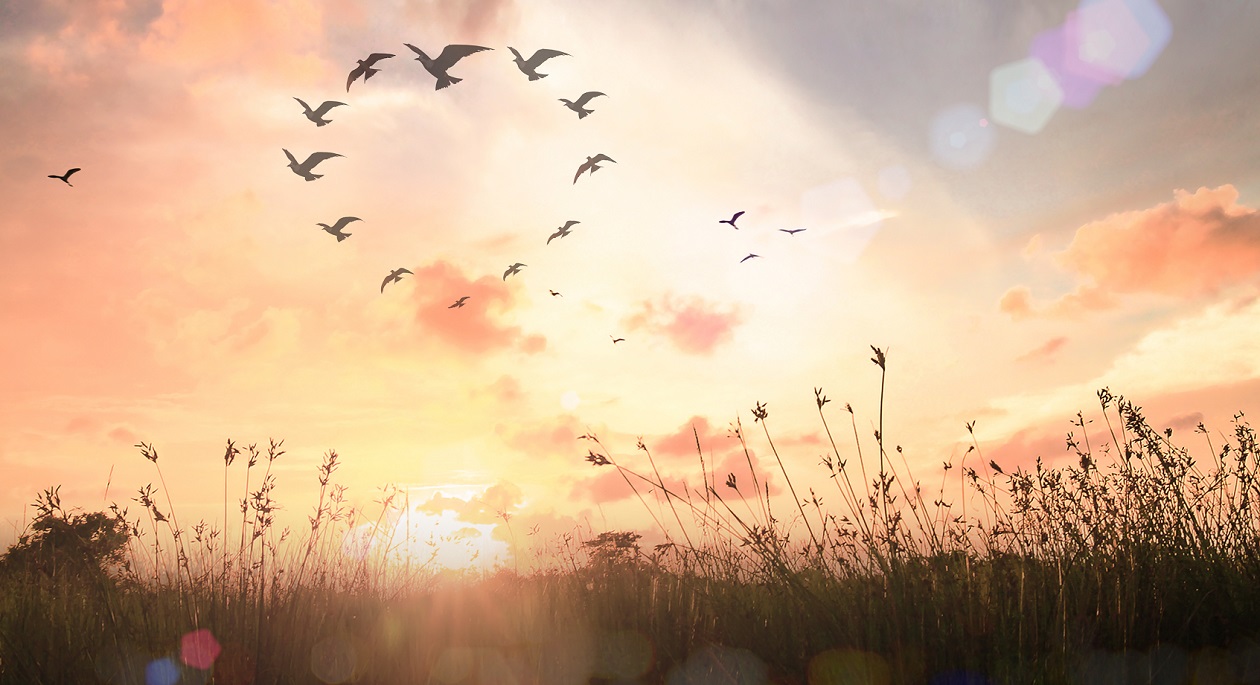
Photo:YouTube
